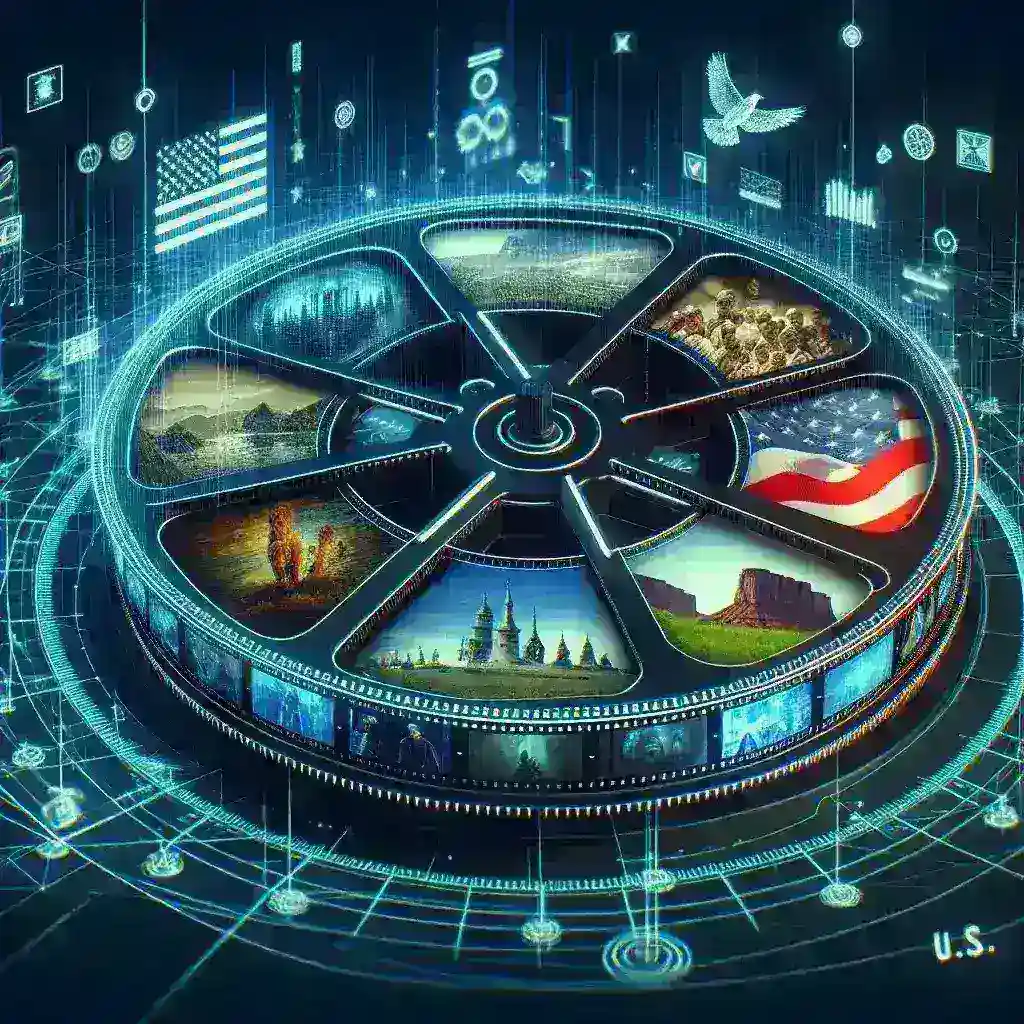Amazon Prime’s Innovation: AI-Generated Documentary Trailers
In an era dominated by rapid technological advancements, Amazon Prime has taken a significant leap by introducing AI-generated documentary trailers aimed specifically at U.S. viewers. This innovative approach not only revolutionizes the way trailers are produced but also resonates with audiences who are increasingly drawn to personalized and engaging content.
The Rise of AI in Entertainment
The use of artificial intelligence in content creation is not a new phenomenon. However, its application in generating trailers for documentaries marks a pivotal shift in the entertainment industry. Traditional trailer production often involves extensive human effort, including scriptwriting, editing, and creative storytelling. AI technology simplifies this process by analyzing vast amounts of data to create compelling previews that can captivate potential viewers.
How AI-Generated Trailers Work
AI-generated trailers utilize algorithms that assess various elements, such as audience preferences, documentary themes, and popular trends. By processing this data, AI can produce trailers that highlight key moments, emotions, and narratives that resonate with the target audience. The process typically involves:
- Data Collection: Gathering viewer data, documentary content, and market trends.
- Analysis: Utilizing machine learning to identify patterns and preferences.
- Trailer Generation: Creating a storyboard that aligns with audience interests.
- Feedback Loop: Incorporating viewer feedback to further refine future trailers.
Benefits of AI-Generated Documentaries
The introduction of AI-generated documentary trailers offers numerous advantages:
- Speed: AI can produce trailers much faster than traditional methods, dramatically reducing the time from content creation to audience engagement.
- Cost-Effectiveness: By automating parts of the trailer-making process, significant cost savings can be achieved.
- Personalization: Trailers can be tailored to specific demographics, enhancing viewer engagement and subscription rates.
- Consistent Quality: AI algorithms can maintain a standard of quality, ensuring that all trailers meet a certain level of professionalism and appeal.
Potential Drawbacks
While the benefits are substantial, there are challenges and potential drawbacks to consider:
- Lack of Human Touch: The emotional depth and creative nuances that human creators bring may be lost in AI-generated content.
- Ethics and Responsibility: Questions arise regarding the ethical implications of AI-generated content, including authenticity and potential biases in data processing.
- Viewer Reception: While many viewers may appreciate the efficiency and personalization, some may prefer the traditional, human-crafted approach to trailers.
Historical Context of Trailers
Trailers have evolved significantly since their inception in the early 20th century. Initially created to promote feature films, trailers have expanded to include various forms of media, including documentaries. Historically, documentary trailers have struggled to capture the same level of excitement as their fictional counterparts. The integration of AI technology presents an opportunity to bridge this gap, making documentaries more appealing through engaging previews.
Future Predictions for AI in Content Creation
Looking ahead, the role of AI in content creation is poised to expand further:
- Increased Customization: As algorithms become more sophisticated, expect even greater levels of customization in trailers, catering to niche audiences.
- Integration with Virtual Reality: The future may see AI-generated trailers integrating with VR technology, creating immersive experiences for viewers.
- Adaptive Content: AI could evolve to create not just trailers, but also adaptive content that changes based on viewer interactions.
Expert Insights on AI and Documentaries
Industry experts weigh in on the implications of AI-generated documentary trailers. According to media analyst Dr. John Smith, “The shift towards AI in trailer production is not just about efficiency; it’s about understanding and responding to audience desires in real-time.” His insights emphasize the importance of aligning AI with viewer expectations, ensuring that the technology serves the content rather than overshadowing its authenticity.
Real Examples of AI in Action
Several platforms have experimented with AI in trailer production. For instance, Netflix has utilized AI to analyze viewer data and adjust promotional content accordingly. Similarly, Amazon Prime’s foray into AI-generated trailers signifies a growing trend where data-driven insights shape media engagement strategies.
Cultural Relevance of Documentaries
Documentaries serve as a vital medium for storytelling, often shedding light on important social issues, historical events, and cultural phenomena. The rise of AI-generated trailers could democratize access to these stories, drawing in audiences who might have overlooked them. By enhancing the visibility of compelling documentaries, AI technology could contribute to a more informed and engaged society.
The Importance of Viewer Feedback
As Amazon Prime rolls out AI-generated trailers, viewer feedback will play an essential role in refining this new approach. Engaging the audience through surveys, social media interactions, and ratings can provide valuable insights into what resonates and what doesn’t. This iterative process not only benefits Amazon Prime but also empowers viewers, allowing them to contribute to the content they consume.
Conclusion: Embracing the Future
Amazon Prime’s introduction of AI-generated documentary trailers for U.S. viewers represents a significant step towards embracing innovative technology in the entertainment industry. As the landscape continues to evolve, the balance between AI efficiency and human creativity will be paramount. By leveraging AI’s capabilities while maintaining a focus on authenticity and emotional engagement, Amazon Prime can set a precedent for the future of content creation.

